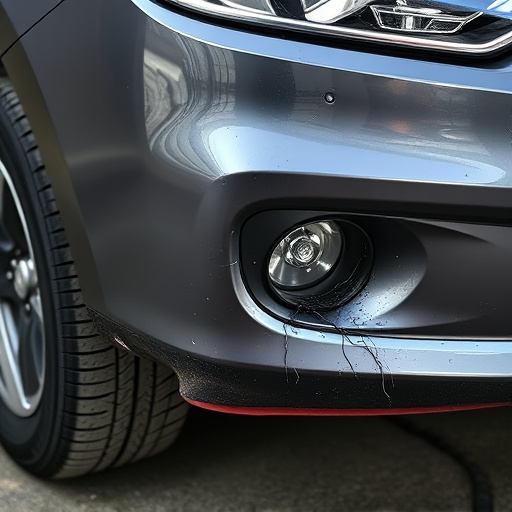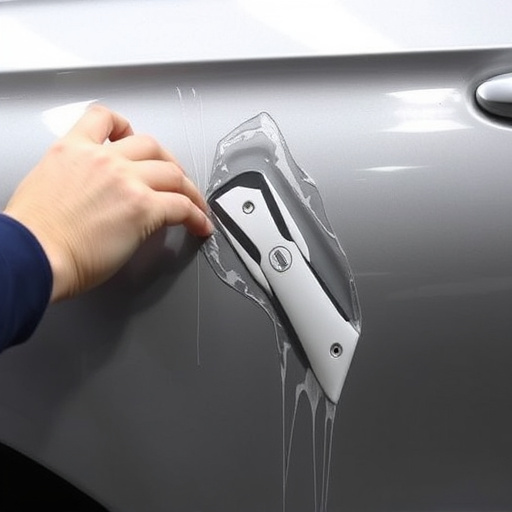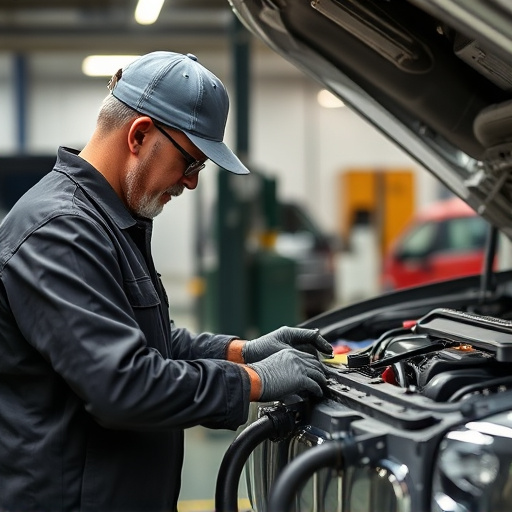An Insurance Repair Warranty (IRW) offers vehicle owners and repair shops peace of mind, covering repairs for specified periods after completion, crucial in auto body work where issues can arise post-repair. IRWs encompass major and minor repairs, simplifying claims processes, ensuring skilled technicians, and providing structured dispute resolution, fostering trust during car restoration.
Insurance repair warranties play a pivotal role in protecting homeowners and businesses alike. In this comprehensive guide, we demystify these guarantees, highlighting their essential benefits beyond traditional coverage. From ensuring timely repairs to smoothing dispute resolution processes, understanding your insurance repair warranty is key to averting costly surprises. We’ll delve into the basics, explore key advantages, and offer insights on navigating claims, empowering you to make informed decisions regarding this valuable safety net.
- Understanding Insurance Repair Warranty Basics
- Key Benefits of Having a Repair Warranty
- Navigating Claims and Resolving Disputes
Understanding Insurance Repair Warranty Basics

Insurance Repair Warranty (IRW) is a crucial safety net for both vehicle owners and repair shops. At its core, an IRW ensures that repairs made to a vehicle are covered for a specified period after the work has been completed. This safeguard is particularly important in the realm of auto body repair, where unforeseen issues can arise even after a seemingly successful job.
When it comes to protecting your investment, understanding the basics of IRW is essential. It covers not just major repairs but also smaller fixes like bumper repair and vehicle dent repair. This ensures that if any defects or substandard work are discovered within the warranty period, the responsible party—whether the shop or the insurance provider—is obligated to rectify the issue without additional cost to the policyholder.
Key Benefits of Having a Repair Warranty

Having an insurance repair warranty provides several key benefits that go beyond just financial protection. Firstly, it offers peace of mind by ensuring that any repairs or replacements covered under the warranty are handled efficiently and without unexpected costs. This is particularly crucial for major automotive collision repair or vehicle body repair incidents where the financial burden can be significant.
Additionally, an insurance repair warranty facilitates a streamlined claims process, allowing policyholders to focus on their recovery rather than navigating complex administrative procedures. It also ensures that only authorized and skilled technicians are engaged in the automotive body work, maintaining the safety and quality standards of the repairs.
Navigating Claims and Resolving Disputes

Navigating claims under an insurance repair warranty is a crucial aspect of ensuring comprehensive protection for your vehicle. When it comes to car bodywork or vehicle bodywork repairs, having a robust warranty in place acts as a safety net. It facilitates a structured process for addressing any disputes that may arise during the restoration of your car.
An efficient claims procedure involves clear communication between the policyholder, repair shops, and insurance providers. The insurance repair warranty outlines the terms and conditions, ensuring that all parties understand their rights and responsibilities. This includes specifying the timeline for repairs, replacement parts’ quality standards, and any deductibles applicable. By following these guidelines, disputes can be resolved swiftly, providing peace of mind to policyholders and fostering trust in the overall restoration process.
An insurance repair warranty serves as a powerful shield, offering peace of mind and financial protection for unexpected repairs. By understanding the basics and key benefits, policyholders can navigate claims efficiently and resolve disputes, ensuring their homes or businesses are safeguarded against unforeseen damages. This comprehensive guide highlights the importance of such warranties in modern risk management strategies, empowering individuals to make informed decisions regarding their property’s well-being.














